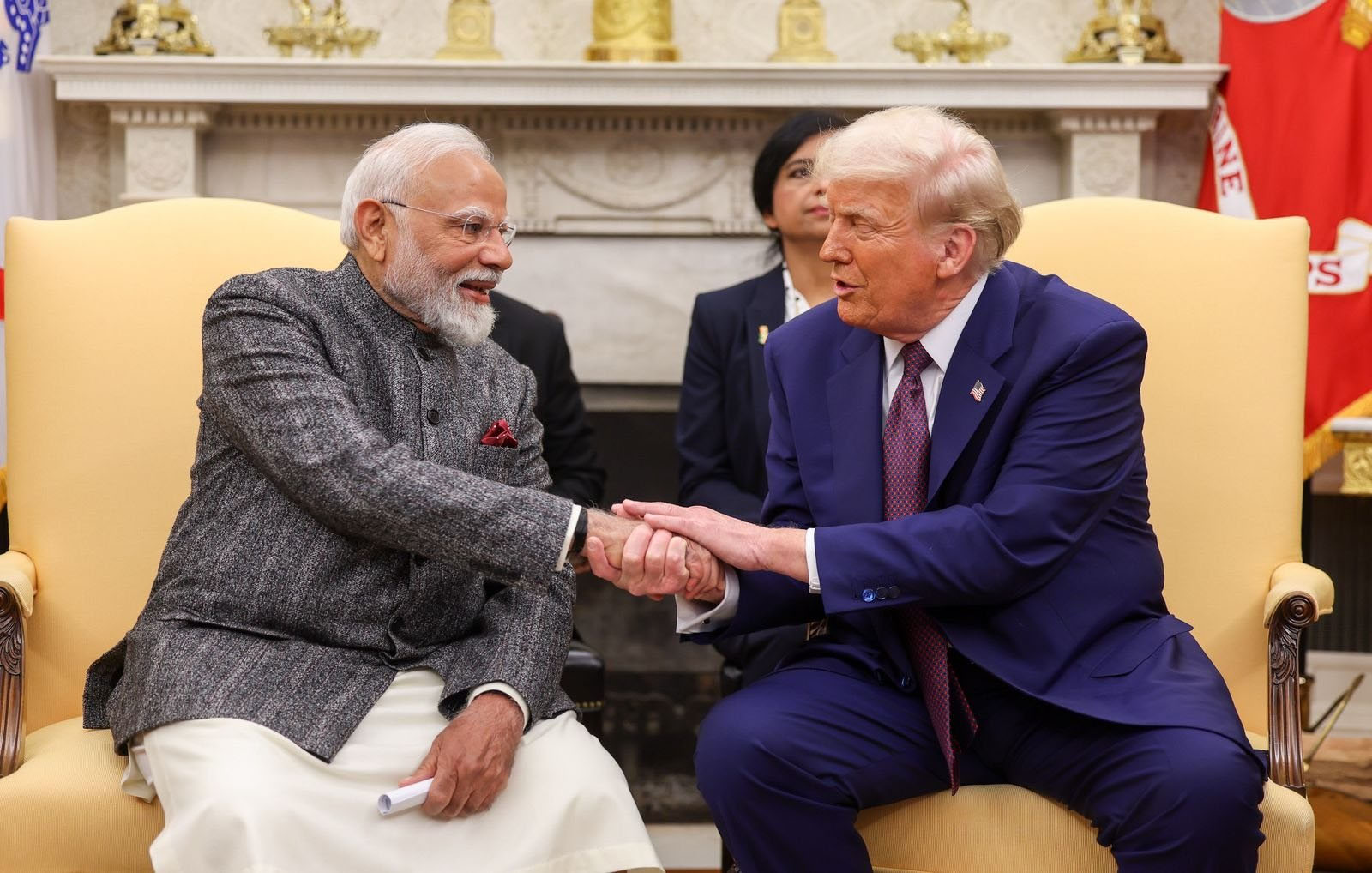WASHINGTON, Feb 14: In a significant development, India and the US have agreed to finalize the first phase of a mutually beneficial trade agreement by the end of this year, aiming for an ambitious target of USD 500 billion in annual bilateral trade by 2030. This comes even as President Donald Trump emphasized that Washington will not exempt New Delhi from reciprocal tariffs.
Trade and tariff issues dominated the discussions between Prime Minister Narendra Modi and Trump, which took place shortly after the US President revealed a new reciprocal tariff policy affecting all US trading partners.
During a joint media session with Modi, Trump announced their agreement on a deal that would enable India to import increased amounts of US oil and gas, aiming to reduce the US trade deficit with India.
Last year, the bilateral trade between India and the US was approximately USD 130 billion, while the current US trade deficit stands at around USD 45 billion.
Officials noted that the two leaders expressed a strong commitment to tackle bilateral trade obstacles.
Modi and Trump engaged in extensive discussions about mutual concerns regarding market access and issues stemming from “other territories” with excess capacity that exploit consumption in countries such as India and the US, sources indicated.
The leaders explored potential solutions to these challenges and directed their teams to collaborate on a mutually advantageous trade agreement to address these issues, they reported.
“Whatever India charges, we will charge them,” stated Trump concerning tariffs, adding, “We are being reciprocal with India.”
Modi and Trump reaffirmed their dedication to strengthening the US-India trade relationship to drive growth that promotes fairness, national security, and job creation, as outlined in a joint statement.
“To this end, the leaders established an ambitious new target for bilateral trade – ‘Mission 500’ – which aims to more than double total bilateral trade to USD 500 billion by 2030,” it said.
Acknowledging the need for new and equitable trade terms to achieve this level of ambition, the leaders announced plans to negotiate the initial phase of a beneficial, multi-sector Bilateral Trade Agreement (BTA) by the fall of 2025, according to the statement.
In order to advance this innovative and comprehensive BTA, the US and India will adopt an integrated approach to bolster and deepen bilateral trade in goods and services, while striving to enhance market access, lower tariff and non-tariff barriers, and strengthen supply chain integration, as stated.
Trump characterized the import duties enacted by India on certain US goods as “very unfair” and “strong.”
The statement noted that the US welcomed India’s recent decisions to reduce tariffs on US “products of interest” such as motorcycles, ICT (Information and Communication Technology) products, and metals, alongside enhancements to market access for US agricultural items including duck meat and medical devices.
India also expressed gratitude for the US’s initiatives to boost the export of Indian mangoes and pomegranates.
Both nations committed to cooperate in boosting bilateral trade by increasing US exports of industrial goods to India and Indian exports of labor-intensive manufactured products to the US.
The two sides will also collaborate on expanding trade in agricultural goods, as per the joint statement.
Modi and Trump pledged to create opportunities for US and Indian enterprises to pursue greenfield investments in high-value industries within each other’s countries.
In this context, the leaders acknowledged ongoing investments from Indian companies totaling approximately USD 7.35 billion, including those from Hindalco’s Novelis in finished aluminum products at their advanced facilities in Alabama and Kentucky; JSW in steel manufacturing operations in Texas and Ohio; and Epsilon Advanced Materials in critical battery materials manufacturing in North Carolina.
These investments are said to support over 3,000 high-quality jobs for local families, according to the joint statement. (Agencies)


Leave a Reply